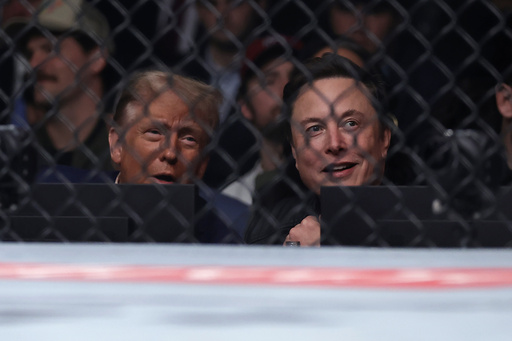
Attorneys representing Amazon and Elon Musk’s SpaceX presented their case in a federal appeals court on Monday, contending that the structure of the National Labor Relations Board (NLRB) is unconstitutional. This assertion is part of a protracted legal battle likely to extend into a Trump administration period that is anticipated to focus on reducing regulatory costs.
A trio of judges from the 5th U.S. Circuit Court of Appeals in New Orleans heard individual oral arguments relating to lawsuits filed by SpaceX and Amazon after the NLRB lodged complaints concerning these companies’ handling of workers’ rights and union organization efforts.
If the ruling favors the companies, it could significantly weaken—if not destabilize—the nearly century-old agency responsible for enforcing labor laws and addressing complaints from workers against their employers. The matter might end up in the U.S. Supreme Court, which currently has a conservative majority known for restricting the authority of governmental bodies.
The judges questioned the strategies employed by Amazon and SpaceX to bring their cases to the 5th Circuit, where judges appointed by Republican presidents have significant representation.
An NLRB attorney pointed out that both companies initiated their appeals due to lower courts failing to deliver rulings within the specified timelines. However, SpaceX’s attorney, Michael E. Kenneally, countered that the government was heavily focusing on procedural arguments due to perceived weaknesses in its legal stance, which prompted some resistance from the judges.
Judge James E. Graves Jr., nominated by former President Barack Obama, remarked that the strategy suggested ‘procedure doesn’t matter if I win on the merits,’ indicating skepticism toward the argument presented by SpaceX’s lawyer.
SpaceX’s lawsuit against the NLRB was initiated in January after the agency accused the firm of wrongfully terminating employees who criticized Musk in an open letter and suggested that worker activities were being monitored. The company also claimed that NLRB proceedings denied them their right to a jury trial.
Musk, the wealthiest individual globally, has gained considerable influence recently, having contributed around $200 million via his political action committee to support Donald Trump’s presidential campaign. Following Trump’s election, Musk was designated to lead a new efficiency commission aimed at reducing federal government expenses. Musk has expressed intentions for the administration to eliminate excessive regulations that do not serve the public interest.
Meanwhile, Amazon’s lawsuit centers on its challenges regarding a union election held in a New York City warehouse in April 2022. The retail behemoth charged that the NLRB improperly interfered with the election process, particularly by initiating a lawsuit against Amazon to reinstate a terminated organizer shortly before voting commenced.
Although the Amazon Labor Union won the election to represent the workers, Amazon has declined to engage in negotiations. In its legal arguments, Amazon’s attorneys contended that the NLRB board members who sanctioned the agency’s complaints acted with bias by denying a review of Amazon’s objections. They argued that the board’s structure was unconstitutional, largely because its members cannot be removed by the U.S. president.
Prior to the court hearing, NLRB General Counsel Jennifer Abruzzo issued a statement suggesting that it is not uncommon for large corporations to challenge the NLRB’s authority to enforce workers’ rights, aiming to evade accountability for their labor law breaches.
